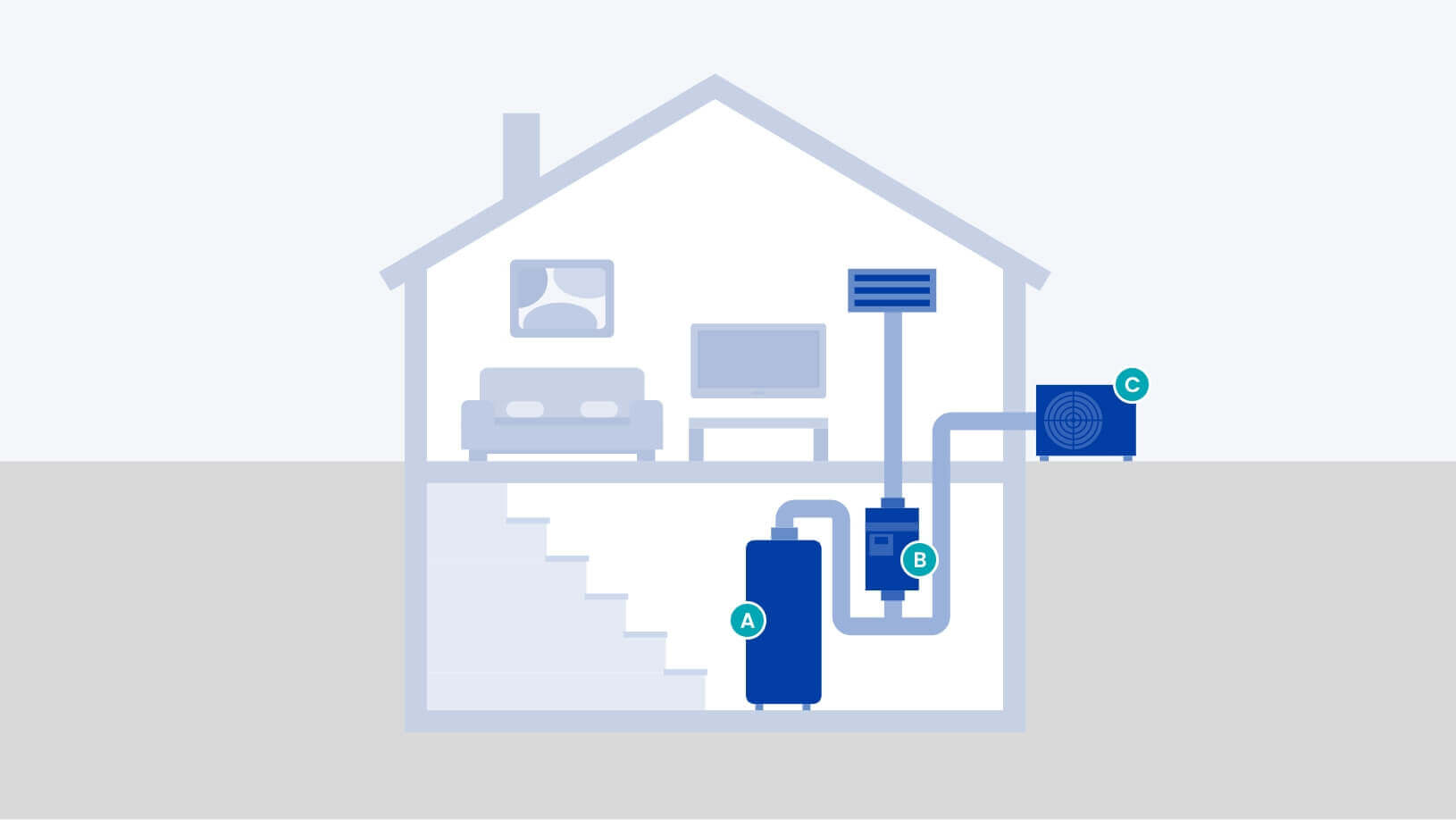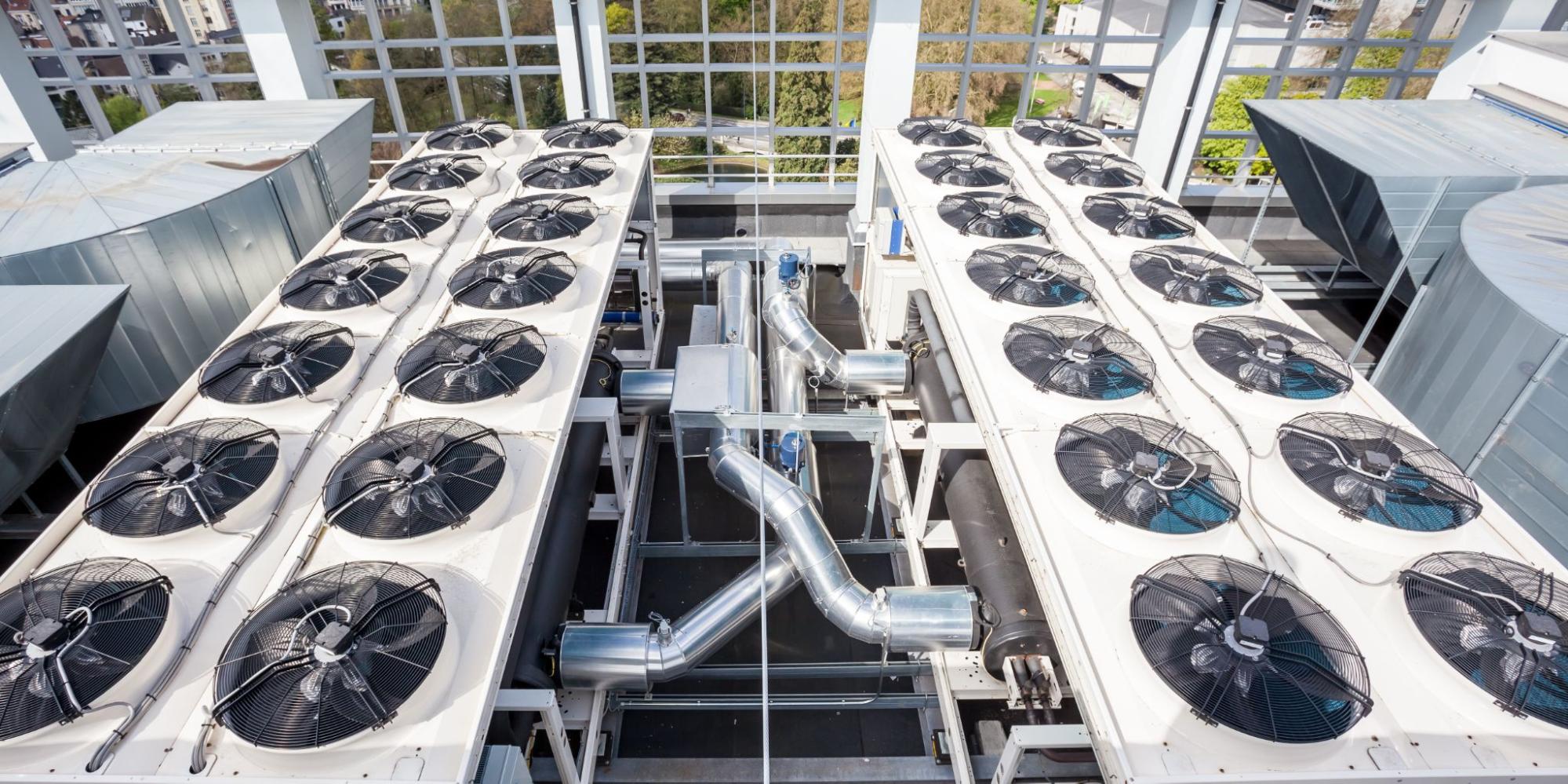Residential AC System Installation for Efficient Home Cooling
Residential AC System Installation for Efficient Home Cooling
Blog Article
An Extensive Look at A/c Providers and Their Effect on Power Efficiency and Price Cost Savings
With technological developments like wise thermostats and high-efficiency elements, the potential for optimizing system efficiency is huge. As we discover the complex connection between Heating and cooling systems and operational costs, consisting of the change towards environmentally friendly choices, the inquiry arises: just how can these methods be successfully carried out to make the most of both economic and environmental advantages?

Value of Cooling And Heating Equipments
heating and cooling systems are a crucial component of modern structures, playing a critical function in preserving comfortable and healthy and balanced interior atmospheres. These systems, including heating, air flow, and air conditioning, are necessary for controling temperature level, humidity, and air quality, consequently making certain the wellness of residents. Effective a/c systems contribute considerably to producing an optimal interior climate, which is essential for both household and industrial areas.
In industrial structures, HVAC systems are important to offering a safe and effective environment. By managing indoor climate problems, these systems aid stop the development of mold and the spread of air-borne impurities, therefore safeguarding the health and wellness of consumers and employees. Furthermore, in domestic setups, cooling and heating systems enhance living conditions by using constant thermal convenience and improving interior air quality, which is crucial for overall wellness.
Furthermore, the style and upkeep of heating and cooling systems have a straight influence on energy intake and functional prices. Effectively made and maintained systems can substantially minimize energy usage, causing lowered energy costs and a smaller carbon footprint. The efficiency of these systems thus plays an essential duty in advertising sustainability and power preservation within structures, highlighting their relevance in the modern-day architectural landscape.
Breakthroughs in HVAC Innovation
Advancement in cooling and heating innovation is changing the way buildings handle interior environments, introducing a brand-new age of effectiveness and control. Recent developments have actually focused on optimizing power consumption while enhancing user comfort. One notable advancement is the integration of wise thermostats, which use man-made intelligence to find out occupancy patterns and adjust temperature levels as necessary, minimizing unnecessary power usage.
Variable Cooling Agent Circulation (VRF) systems represent one more considerable leap forward. These systems enable exact temperature level control in various zones of a structure, improving comfort and lowering power waste. VRF innovation is specifically beneficial for huge business rooms, providing flexibility and scalability.
Additionally, the development of Internet of Things (IoT) devices has changed a/c systems into interconnected networks with the ability of real-time information collection and analysis. This connectivity enables anticipating maintenance, making certain systems operate at peak performance and lessening unexpected downtime.
Furthermore, advancements in materials and layout, such as making use of high-efficiency coils and compressors, have actually boosted overall system efficiency - Heating Contractor. The adoption of eco-friendly refrigerants additionally underscores the sector's dedication to sustainability
These technical innovations are essential in lowering operational costs and environmental effect, setting new criteria for constructing climate management.
HVAC Maintenance and Effectiveness
Making certain ideal performance of cooling and heating systems extends past technological innovations; it likewise pivots on efficient maintenance methods. Routine upkeep is important for maintaining efficiency, decreasing energy consumption, and extending the life span of cooling and heating systems. The key objective is to ensure that all parts operate at their peak possibility, thereby minimizing power wastefulness and preserving constant indoor comfort levels.
Regular upkeep tasks, such as cleaning or changing air filters, checking cooling agent degrees, and inspecting ductwork for leaks, are necessary for protecting against unneeded strain on the system. Filthy or blocked filters can block air movement, creating the system to work more difficult and take in more power. Likewise, inadequate cooling agent degrees can decrease cooling down effectiveness, resulting in higher functional expenses.
Additionally, routine assessments by qualified experts can recognize prospective issues prior to they escalate into expensive repair work or system failures. These assessments frequently consist of examining electrical links, adjusting thermostats, and making certain the overall honesty of the cooling and heating system. By dealing with small problems early, home owners and companies can prevent unanticipated malfunctions and boost energy effectiveness.
Cost-Effective Heating And Cooling Solutions
For those aiming to get the most out of their air, ventilation, and home heating conditioning systems without damaging the bank, checking out cost-effective cooling and heating options can make a considerable distinction. One immediate step is to invest in programmable thermostats, which permit users to set specific temperature levels for various times of the day, enhancing power use and minimizing unneeded usage. By automating temperature level modifications, house owners can attain significant cost savings on energy costs.
Routine maintenance is right here another vital component of economical a/c management. Making certain that filters are cleaned or changed consistently, ductwork is secured, and systems are serviced by professionals can avoid costly fixings and boost system long life. Precautionary upkeep not only keeps system efficiency yet also helps in staying imp source clear of unexpected break downs that can bring about expensive emergency repair services.
Furthermore, retrofitting existing systems with energy-efficient parts, such as variable speed motors or high-efficiency compressors, can be a sensible financial investment. These upgrades improve operational effectiveness, lower power use, and can often be applied at a portion of the expense of a complete system substitute.
Environmental Effect Reduction
Minimizing the environmental effect of HVAC systems is essential in today's quest of sustainable living. HVAC systems are substantial factors to power consumption, representing virtually 40% of power use in business buildings. This energy need usually relies upon fossil gas, bring about greenhouse gas exhausts and environmental degradation. Transitioning to extra effective systems, such as those using sustainable power sources, can significantly reduce these impacts.
Technical advancements in HVAC layout and procedure, including the assimilation of clever thermostats and energy-efficient heatpump, are critical in decreasing carbon footprints. These developments enable maximized power usage, lessening waste and improving total system efficiency. Furthermore, embracing routine maintenance techniques ensures cooling and heating systems operate at peak efficiency, further curtailing unneeded power usage.
Moreover, the use of eco-friendly refrigerants is crucial, as standard cooling agents, like CFCs and HCFCs, have been eliminated because of their ozone-depleting residential or commercial properties. Modern choices, such as hydrofluoroolefins (HFOs), offer decreased environmental risks, aligning with international Discover More Here ecological protocols. By accepting these lasting techniques, HVAC solutions can play a transformative function in reducing environmental influences, advertising power performance, and fostering a much more sustainable future.
Conclusion

Furthermore, the layout and maintenance of A/c systems have a direct influence on power usage and operational expenses. Routine maintenance is vital for maintaining performance, decreasing energy intake, and expanding the life span of Cooling and heating systems. HVAC systems are considerable contributors to energy intake, accounting for virtually 40% of power use in business buildings. In addition, taking on routine upkeep techniques ensures A/c systems operate at peak performance, further stopping unneeded energy usage.
The change to ecologically pleasant Cooling and heating systems better advertises and decreases operational prices sustainability. (Heating Contractor)
Report this page